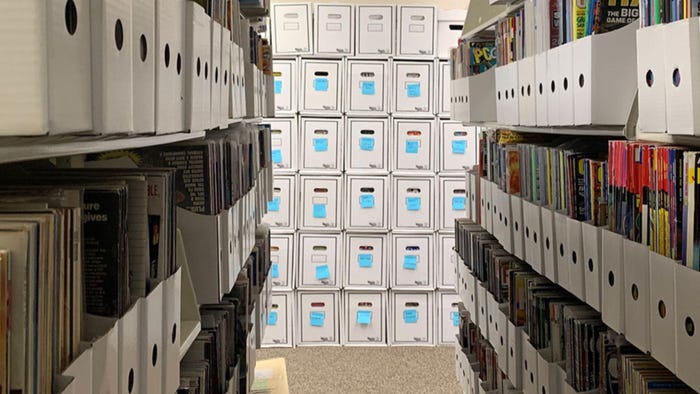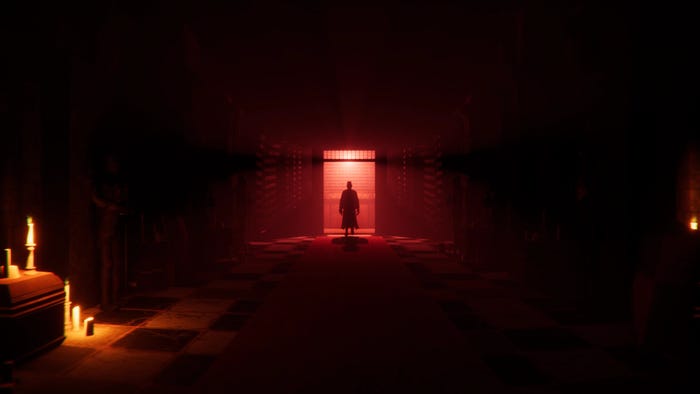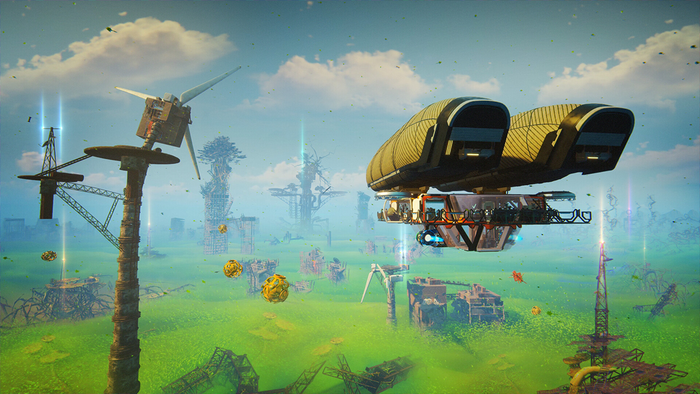With the <a href="http://www.gamasutra.com/php-bin/news_index.php?story=20486">recent announcement</a> of a planned UK National Video Game Archive</a>, Gamasutra spoke to Dr. James Newman about its launch, its plans to archive game-inspired media and fan-
November 12, 2008

Author: by Simon Carless, Chris Remo
"Video games are living, breathing things with cultural lives and histories," says Dr. James Newman of the UK's recently created UK National Videogame Archive. The newly launched Archive is a partnership between the National Media Museum and Nottingham Trent University's Centre for Contemporary Play. Gamasutra caught up with Newman, a key figure behind the venture, to discuss its plans and intent. Rather than being a straightforward game collection, Newman stresses that the Archive's goal is to chronicle game history and game culture broadly speaking -- which extends beyond game design itself and out into the art that surrounds gaming, including game-inspired media and fan-created works. Says Newman, "To make sure that we can tell the greatest range of stories, we want to spread our net as wide as possible and focus not only on video games, per se, but also on the cultures of play and playfulness that surround them." "We were determined from the start that this project would not just involve setting up a digital archive of code, though code is important, too," he explains. "Video games are living, breathing things with cultural lives and histories. Some of these stories can be seen by looking at a particular piece of hardware or software or even a particular sequence or soundtrack to a game." "Other stories are told through design documents or through the performances of players who make new and unexpected cultural artifacts from games. Machinima, for instance, emerges from the retooling of cameras in first-person shooters like Doom, so to truly understand what machinima is, you need to understand this context, which is all about inventive gamers playing with the game." Newman also cited the vast variety of game formats as a major challenge to archiving and to displaying games in an attractive way. "There have been attempts to curate exhibitions of video games in the past, and they have been hit and miss affairs," he notes. "Where you're dealing with coin-op games, you're usually fairly safe because they are designed to be approachable 'pick up and play' experiences," he continues, "but many pride themselves on the tens -- even hundreds -- of hours of gameplay they offer and on the complexity of their branching narratives and structures." "How do you take a 150-plus-hour game that may take all sorts of different storylines depending on choices you make or your proficiency as a player, and show it to somebody who's never seen it before and may not have much experience of games?" The Archive hasn't quite reached the point of answering that question. "This is not a brick-and-mortar building -- not yet, anyway," Newman points out. Right now, the group is focusing on research and collection of games and gaming hardware, across several decades and myriad platforms. "The partnership between these two organizations already at the forefront of their areas means that we have an enormous head start with our research, facilities and expertise," he adds. Eventually, the goal is to display the collection through a combination of online and physical means, with access to gallery space owned by the National Media Museum in Bradford as well as by other partners UK-wide as part of the National Museums of Science and Industry. With funding from the UK government's Department for Culture, Media and Sport, the Archive maintains a certain amount of interest in the UK's own industry history, but its goal is to cast a much wider net. "We're interested in the impact and role of video games on the UK's cultural heritage but we are not only interested in UK development," says Newman. "Just like film, music, television, literature and the visual arts, gaming is a global phenomenon where different aesthetics, working practices, playing habits and preferences meld together." "That said, there are certainly eras when naturally one's attentions turn to the UK and we definitely want to celebrate British development, talent and creativity. We don't want to paint a picture of the UK's heyday being confined to home computing in the 1980s." Long-term, the Archive hopes to present its growing collection in a way that reaches outside of the core gaming base -- a task that can be difficult for the sometimes-insular industry. "The National Videogame Archive is on the one hand designed as a resource for scholarly research," Newman says, "but we have been agreed from the start that we are equally interested in interpreting video games for a more general audience of gamers and non-gamers alike." Those interested in more information about the Archive can read the FAQ page on its official website, or visit the Save The Video Game website to make suggestions.
You May Also Like







